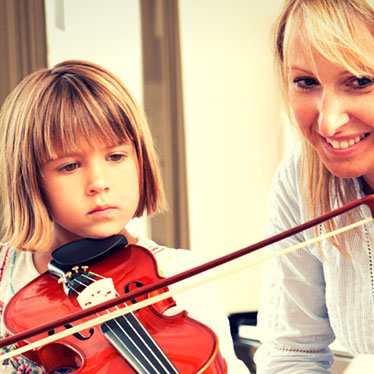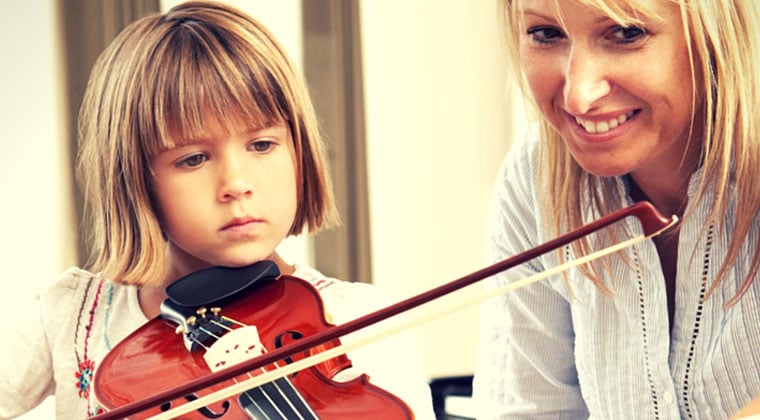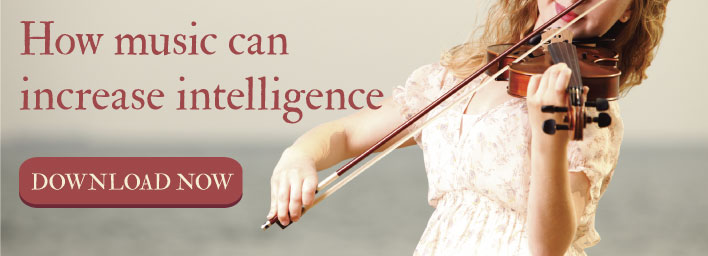Can Learning To Play A Musical Instrument Help Children With ADD And ADHD?

 For many years it’s been an accepted fact that learning to play a musical instrument is a wonderful, lasting way to expand the abilities of gifted students. But did you know that music instruction is now recognized for its ability to help children with disabilities and a number of learning disorders?
For many years it’s been an accepted fact that learning to play a musical instrument is a wonderful, lasting way to expand the abilities of gifted students. But did you know that music instruction is now recognized for its ability to help children with disabilities and a number of learning disorders?
It’s true. Music offers the foundational groundwork for all sorts of learning solutions. Studies have found that music has unique interaction with the brain—causing synopses to fire in certain regions—which makes it highly effective for increasing cognitive development and overcoming many other physical, social, and mental impairments.
However, many parents wonder if learning to play a musical instrument, like the violin, can have a positive impact on the symptoms associated with Attention Deficit Disorder (ADD) or Attention Deficit Hyperactive Disorder (ADHD). The answer is a resounding yes. Children who suffer from these disorders can gain fruitful benefits from music instruction. Indeed, improvements can be seen in:
- Attention levels
- Concentration
- Impulse controls
- Social functioning
- Self-expression and self-esteem
- And memory retention
What Makes Music Instruction so Different?
Because music instruction combines all three learning behaviors (visual, auditory, and kinesthetic), children who suffer from ADD and ADHD are actively engaged throughout the learning process. And, this type of comprehensive interaction can yield amazing results.
Holding the instrument in the proper position provides the hands-on activity needed. And when a motion, such as drawing the bow across the strings in conjunction with specific finger placement, is doubly reinforced through the auditory sound produced and the written music, you get a combination that reaches kids with ADD and ADHD. The inherent structure in a musical composition provides a strong sense of internal order, sequence, and categorization. Memory and concentration skills are enhanced every time that you child plays a note.
When you consider the learning difficulties that children with ADD or ADHD face (often experiencing repeated frustrations), engaging more than one neural pathway through a variety of sensory channels allows them to overcome learning hurdles. Indeed, when your child makes his or her first notes on an instrument, the sheer excitement, confidence, and confirmation of success goes a long way toward building the self-esteem needed for life-long pursuits.
Avoiding Pitfalls
The most common drawback that many parents of ADD and ADHD diagnosed children experience involves a lack of practice. For anyone, practice hours are extremely important for success, and this is especially true for children with learning disabilities. Repeated practice reinforces learning consistency.
However, parents can avoid the “lack of practice” pitfall by encouraging their child to pick up their instrument with a practice buddy. This is where your local support group, school counselor, or association can help. Before your child begins to learn any instrument, reach out within your community to discover if there’s a peer (your child’s age or a little older) who is willing to become a practice buddy. If not, consider engaging a personal instructor whose help will provide a little extra encouragement and support.
Translating Music Instruction to Other Educational Undertakings
The skills that are built through music instruction help translate into other areas of your child’s education. Math skills are particularly linked with music arrangements. Fractional divisions (notes represent a portion of each bar) and orderly logic, sequence, and predictions are inherent in every piece of music, and making that connection is a vital part of understanding a variety of educational applications.
In addition, music instruction breaks down a complicated task into small, graduated steps and stages. That method helps establish the cognitive processes that relate to reading comprehension and language development.
Children who live with ADD or ADHD need tools that will help them reach their full potential. Learning to play a musical instrument offers a wonderful, fun, and exciting way to do that. The tangible benefits that your child will realize will be amazing.


